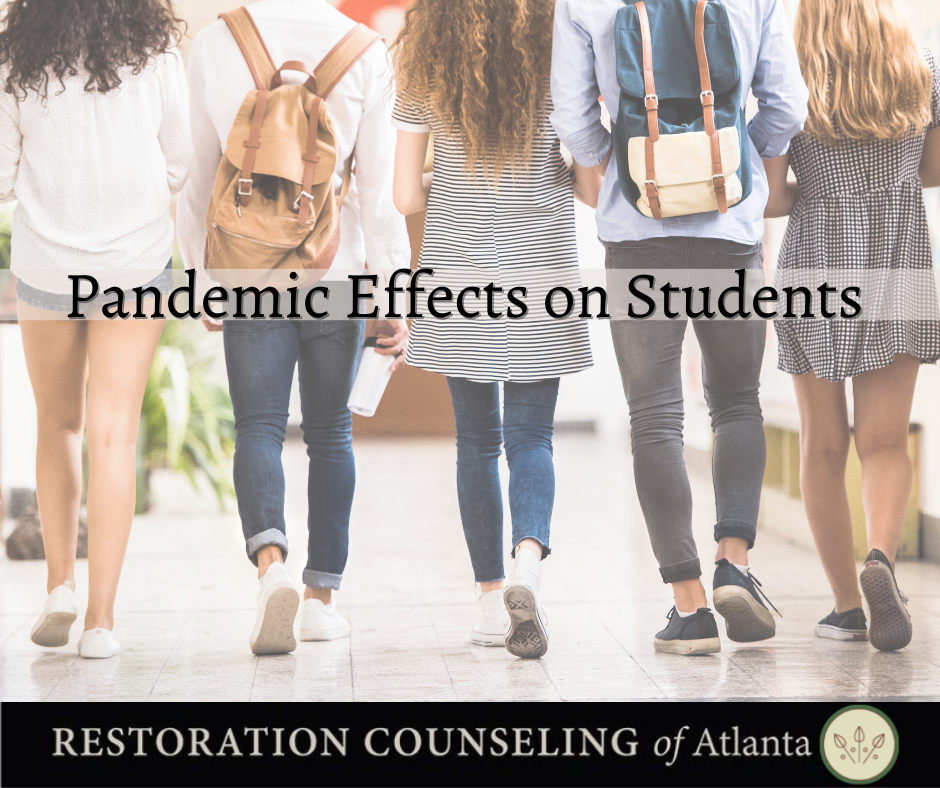And How Parents Can Help Them Rebound
As society moves forward from the COVID-19 pandemic and hopefully puts remote learning and quarantining in the rearview mirror, some of the long-term effects on students of all ages are beginning to be revealed. What are these effects, and what can be done to help students recover?
What struggles have been observed?
According to surveys done in the fall of 2022 by Curry College (MA) professors Vicki Nelson and Lynn Abrahams, students trying to adjust to the demands of college were struggling with learning gaps, motivation and follow-through, mental health issues, a greater reliance on parents, and more difficulty with social engagement. After nearly two years of an altered learning environment, students are having to relearn how to interact in a physical classroom, how to socialize, and how to manage the expectations of a higher level of learning, all at the same time.
According to Sanchez (2022), many students whose last years of high school were disrupted by the pandemic are struggling academically in the foundational college courses they need to succeed later in their academic and professional careers. Professors and students say the remote learning that students were stuck with during the pandemic wasn’t as good as what they would have had in person. The students were also often distracted — trying to learn while grappling with health, financial, and family stressors.
According to White (2023), “Academics at Harvard University studied test scores from over two million elementary and middle school students and found that students who learned remotely for just one month during the pandemic lacked the equivalent of seven to 10 weeks of math education. The research focused on math education, but they believe learning loss was similar in other areas such as reading. It’s also difficult to estimate the loss in other areas which are more difficult to measure, such as social-emotional skills.”
Some students realized they had missed some of the building blocks of success because schools had made accommodations for students struggling with pandemic stressors, including easing course requirements. College professors have noted that some students now expect the same leniency they got in high school regarding deadlines, attendance, and completion of assignments, accommodations that professors do not typically offer.
Because of the disruptions and stress, students seem to have lost their “student muscle,” that is, the ability to complete schoolwork at the same level as they did pre-pandemic. Students that once strove for excellence and put in their best efforts were finding hurdles, such as brain fog, rusty study skills and habits, poor time management and organization, and a lack of motivation.
They have trouble concentrating and experience a sense of detachment and overwhelm, which feels very unlike the person they used to be. These students are particularly at risk for higher stress levels, anxiety, and depressive disorders. Montclair State adjunct professor and psychotherapist Phoebe Farber (Caughlan, 2022) noted, “I think that [COVID-19] has left a lot of young adults pretty fragile; worried about their future and feeling cut off from their peers.”
The resulting mental health problems are a big concern. A Bestcolleges.com study (2021) revealed that “nearly half (46%) of respondents reported feeling more isolated and lonelier. Additionally, 40% slept less, 39% worked out less and ate worse, and close to one-third (32%) experienced feelings of hopelessness. One-third of students are worried about being able to maintain a minimum GPA. Even with courses conducted online, 37% of students said they’ve found it challenging to attend class on time. More than half (52%) reported struggling to complete homework.”
Jazmin Reyes-Portillo (Montclair.edu, 2022) added that feelings of depression, anxiety and hopelessness, sleep problems, and increased social isolation are factors that can heighten students’ risk of experiencing suicidal thoughts or behaviors. “Young adulthood is a high-risk period for the onset of mental health problems, even without a major stressor like the pandemic. It’s a period of immense growth and personal change. Add in COVID, and it’s a one-in-100-year event that we felt was important to highlight.”
Why does it matter?
Beyond the struggles mentioned above, there are other long-term impacts that can negatively affect students’ futures in a variety of ways. They may:
- have increased difficulty connecting with and working with other people in general,
- struggle to pass classes in general but especially those that build upon one another,
- rely on parents instead of peers for emotional support and guidance more than would be the norm prior to the pandemic,
- be less resilient and have lower self-confidence,
- have less social support, which increases isolation, social anxiety, and other mental health concerns,
- limit school engagement which decreases overall satisfaction with the campus experience, and
- have fewer networking connections and lower interviewing skills as they seek employment after graduation, increasing the time for graduates to “launch.”
What can parents do to help?
First and foremost, parents need to recognize the pandemic impacts and normalize the struggles because millions of students are experiencing the same thing. Believing they are the only ones feeling like this will perpetuate social anxiety and isolation.
Nelson and Abrahams (2023) suggest that parents start by exploring the positives of the pandemic (such as discovering new hobbies or learning new technology) and what they have learned about themselves along the way. This can guide the conversation and point out where students may be judging themselves harshly for having struggled at all.
Have honest conversations about what learning is like for them now to identify problems such as low motivation, perfectionism, knowledge gaps, and organizational and time management challenges.
Then build their sense of control by helping them problem-solve their dilemmas. Resist the urge to fix problems for them. Instead, coach them on skills that may have been missed or forgotten and brainstorm solutions with them to discover options they are willing to try. Be open to their ideas and consider options and alternatives that you may not have had before the pandemic.
Teach them that they can train and strengthen their brain as they would a muscle, and through dedication and regular effort, they will see results over time. This is what Carol Dweck termed a growth mindset (White, 2023).
Encourage increased engagement in extracurriculars for those not participating in school activities and rebuild social skills that you notice are weak. Talk about what makes it difficult for them to talk to others or join a group and offer coaching that builds confidence.
Act as role models for how to learn new things and approach new situations. Talk about your anxieties and fears and show them how you overcome them to move toward higher goals.
Explore both their short-term and long-term goals and help them identify actionable steps to move toward their purpose. They may need your help articulating these, so be curious and repeat what you hear them saying instead of suggesting goals for them. The key is to get their direction and buy-in because being successful at what is meaningful to them is what will create and sustain motivation.
Finally, the best thing parents can do to help students rebound from the pandemic fallout is to believe that they can recover! Don’t see them as fragile or irreparably harmed. Instead, help them identify problem spots and take action to overcome the setbacks. This builds resilience, responsibility, and self-confidence – character traits that transcend education and help them succeed in life.
 by Paige Santmyer, MA LPC NCC CCATP
by Paige Santmyer, MA LPC NCC CCATP
Roswell location
paige@restorationcounselingatl.com, ext. 157
Paige provides counseling to adults ages 18+ experiencing anxiety, depression, relationship issues, parenting struggles, and life transitions. She uses a personalized approach of Client-Centered Therapy and Relational Psychoanalysis, as well as techniques from Cognitive Behavioral Therapy (CBT), Positive Psychology, and Exposure and Response Prevention (ERP). She has a certificate in both anxiety and trauma treatment.
Reference
Bestcolleges.com. (2021). College mental health impacts from Covid-19. Retrieved from: https://www.bestcolleges.com/research/college-mental-health-impacts-from-covid-19
Caughlan, E. (November 25, 2022). College amid the pandemic: Missed milestones and social isolation. Retrieved from: https://www.njspotlightnews.org/2022/11/college-students-missed-key-milestones-social-experiences-during-pandemic/
Montclair.edu. (February 17, 2022). New study shows covid-19 impact on college students. Retrieved from: https://www.montclair.edu/newscenter/2022/02/17/new-study-shows-covid-19-impact-on-college-students/
Nelson, V. and Abrahams, L. (January 2023). Pandemic Fallout Podcast series on collegeparentcentral.com.
Sanchez, O. (April 6, 2022). After the pandemic disrupted their high school educations, students are arriving at college unprepared. Retrieved from: https://hechingerreport.org/after-the-pandemic-disrupted-their-high-school-educations-students-are-arriving-at-college-unprepared/
White, J. (January 27, 2023). Helping kids overcome the pandemic learning loss. Retrieved from: https://www.savingforcollege.com/article/overcome-pandemic-learning-loss

